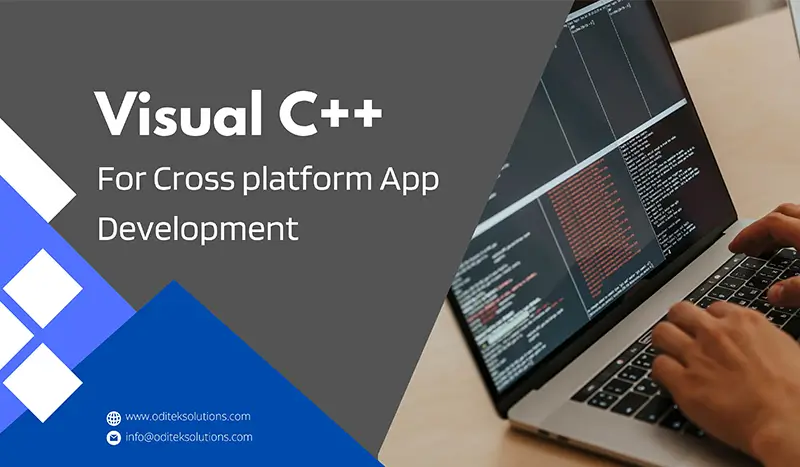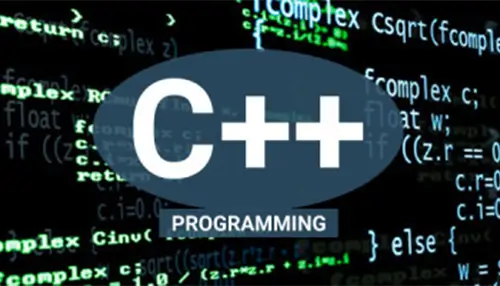In the rapidly evolving world of software development, creating applications that run seamlessly on multiple platforms has become a necessity. Developers are constantly seeking versatile tools and environments that can help them achieve cross-platform compatibility without compromising on performance or user experience. Visual C++ development environment, equipped with a suite of powerful tools, has emerged as a potent solution for cross-platform app development.
In this blog post, we will dive into the Visual C++ development environment, its associated tools, and its capabilities for cross-platform mobile development. We’ll also explore how Visual Studio supports Linux C++ development, making it easier than ever to create cross-platform applications.
Understanding the Visual C++ Development Environment
Visual C++ is a component of Microsoft’s Visual Studio IDE (Integrated Development Environment) that primarily focuses on C++ development. It offers a rich set of features and tools tailored to C++ programmers. While Visual C++ has traditionally been associated with Windows development, recent advancements have made it a viable option for cross-platform app development.
Visual C++ Development Tools
1.Visual Studio IDE
Visual Studio is the central hub for Visual C++ development. It provides an integrated environment where developers can write, debug, and test their code efficiently. Visual Studio offers a plethora of features, including code navigation, refactoring, and integrated debugging tools.
2.CMake Integration
CMake is an open-source build system that simplifies the generation of build files across various platforms. Visual Studio has incorporated CMake support, making it easier to manage cross-platform projects. Developers can use CMake to configure their project once and build it on multiple platforms, including Windows and Linux.
Visual C++ for Cross-Platform Mobile Development
One of the most significant challenges in cross-platform app development is targeting both iOS and Android platforms. Visual C++ provides several options for tackling this challenge:
1. C++/CX and WinRT
Visual C++ allows developers to build Windows Universal Platform (UWP) apps, which can run on Windows-based devices, including PCs, tablets, and smartphones. These apps can be developed using C++/CX, an extension of C++ that enables interaction with the Windows Runtime (WinRT).
2. Using C++ in Xamarin
Xamarin, a popular cross-platform mobile app development framework, supports C++ via platform invocations. Developers can write platform-specific code in C++ and use it in Xamarin projects to target both iOS and Android.
3. Third-party Libraries
Visual C++ supports the integration of third-party libraries like Qt and SDL, which are known for their cro The Visual C++ development environment, boasting a rich array of robust tools, has transformed into a versatile platform for cross-platform app development.
Discover how OdiTek assists in crafting cross-platform applicationsss-platform capabilities. Developers can use these libraries to write code once and deploy it on multiple platforms.
Visual Studio C++ Linux Development
1. C++ Cross-Platform Development
Visual C++ provides support for cross-platform C++ development by allowing developers to write code that can be compiled and executed on both Windows and Linux. This is achieved through the use of CMake and platform-specific configurations.
2. Remote Debugging
Visual Studio offers remote debugging capabilities for Linux development. Developers can set breakpoints, inspect variables, and step through code running on a remote Linux machine from their Windows development environment.
3. Docker Integration
Docker containers have gained popularity for creating reproducible development and deployment environments. Visual Studio integrates with Docker, enabling developers to create and manage Linux-based Docker containers for their C++ applications.
Benefits of Visual Studio Code for Linux C++ Development
Visual Studio Code offers several advantages for Linux C++ development:
1. Lightweight
Visual Studio Code is a lightweight and fast code editor, making it suitable for development on resource-constrained Linux systems.
2. Extensible
Visual Studio Code is highly extensible through a wide range of extensions available in the Visual Studio Code marketplace. You can customize your development environment to suit your specific needs.
3. Integration with Git
Visual Studio Code seamlessly integrates with Git, allowing you to manage version control and collaborate with others effectively.
4. Cross-Platform Compatibility
Visual Studio Code is available on Windows, macOS, and Linux, ensuring a consistent development experience across different platforms.
5. Active Community
Visual Studio Code has a vibrant and active community of developers who contribute to its ecosystem. This means regular updates, bug fixes, and new features.
Conclusion
Visual C++ has come a long way from its roots as a Windows-centric development environment. With the advent of cross-platform development and Visual Studio’s expansion to Linux, developers now have a versatile toolkit at their disposal. Whether you’re building cross-platform mobile apps or diving into Linux application development, Visual C++ and Visual Studio offer the tools and flexibility needed to succeed in today’s diverse software landscape. Embrace the power of Visual C++ and elevate your cross-platform development projects to new heights.
Oditek, as an app development company, stands ready to assist you in realizing your software aspirations. We bring expertise, experience, and a client-focused approach to the table, helping you navigate the complexities of cross-platform development, Linux application development, and more. Partner with Oditek, and let’s embark on a journey towards successful, cross-platform app development together.







